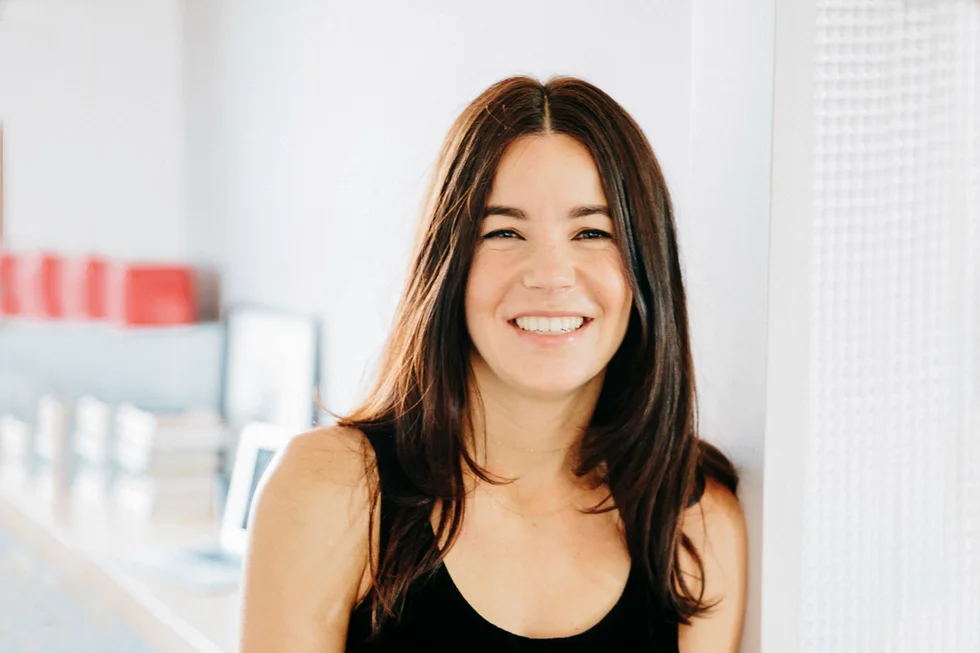Kayleen Schaefer on why things aren’t working out as planned in your thirties
Oct 05, 2022
8 mins


Editorial Coordinator Europe @ Welcome to the Jungle
Journalist and author Kayleen Schaefer used to think that once her professional life was on track everything else would simply fall into place. That didn’t happen – mainly because she didn’t get established in a career when or how she thought she would. When Shaefer began to realize she wasn’t the only one in this situation, she decided to write a book that would reflect her experience and include interviews with a dozen other young adults. In 2021, she published But You’re Still so Young: How Thirtysomethings are Redefining Adulthood. We caught up with Schaefer to discuss how structural changes around work have shaped our professional journey and our lives in recent decades – and since the pandemic. How did we end up giving work such importance? What are the consequences of job instability on our careers, our life expectations and our mental health?
Work plays a critical role in the experience of many of the people you interviewed for your book. How would you define this role within the lives of young adults?
What comes to mind first is something that Marcus, one of my sources, told me. He is disenchanted with his job and he has this push and pull with his dad who says, “Why don’t you just work, get paid, and then you go home and enjoy your family. You do this for a couple of decades and then you retire.” But Marcus replies, “I think there’s more to work than that.” And I think that rings true for a lot of younger people.
We obviously need to get paid, but because work doesn’t come with the kind of protections it used to, we’ve untangled it from the paycheck so we also want more from our jobs. That’s the pickle we’ve found ourselves in concerning work, and I think a lot of people are addressing it by doing other things besides their day job, like Marcus, who does a podcast on the side to help educate young people about falling into debt like he did. He finds a lot of meaning in that, but not a lot of pay. So we’re dealing with holding all of these things together, where older generations didn’t necessarily have to do that.
So is the fact that we are looking for purpose in our jobs directly linked with work and financial instability?
I think that that’s part of it. The idea that work is not just [about] financial security has left us a little more open to thinking, “If I’m not getting that, then at least I ought to be getting this artistic or creative or emotional fulfillment.” And so we’re more willing to leave that job that isn’t providing the financial security anyway and to try to find something that follows our passions. Whereas our parents got financial security from their work, and maybe it wasn’t their passion, but they certainly got enough benefits from it for them to stick around and do it. We’re not [getting that] so we might as well find jobs that make us happy.
In your book you explain that you were waiting for your career to be established for you to start “figuring out the rest of your life.” Do you think this is common among thirtysomethings and maybe even younger generations?
It’s hard when writing about people of a certain age, I always want to be careful to say that this doesn’t apply to everyone. We’re not all moving in lockstep, and that’s the beauty of it. But if we take a woman’s point of view: the start of a woman’s adult life used to be getting married. That often meant taking care of the home, your children and your husband – because they didn’t have other options. Now women have options and I think that a lot of women, myself included, really wanted to go after this career and establish themselves in that realm before deciding “Okay, am I ready to get married? Am I ready to have children?” I don’t know if women 40 years ago would have made the same choice, but if that option had been there for them, they definitely might have. It’s just that now it’s more acceptable for a woman to go after her career first.
In the book you mention Kelly Williams Brown’s Adulting: How to Become a Grown-Up, and how she says that everyone she interviewed thought they were a mess, as did she – of herself. This gap between where we are and where we thought we should be seems pretty common among young professionals. Where do you think this comes from?
Think about when you were in middle school, what did you think a 30-year-old was like? I’m sure I thought it was something along the lines of a person who’s married, has two children and lives in a house they own, and has a career they’ll have for the rest of their lives as vice president or chief executive or something.
There is a woman in the book who finished graduate school and so did her husband around the time they were 30, but neither of them could find a job. So they ended up moving in with her parents. And so she was celebrating her 30th birthday in the retirement home that her parents owned. And she said, “If you had asked me where I would be celebrating my 30th birthday, it was definitely in a house that I owned, definitely with my grown-up friends, with grown-up clothes and doing grown-up things.” But instead, she was eating cake with her husband and her parents in the house. So the stereotype we have of an adult is wildly different from the physical or the superficial trappings of our own adulthood.
How do we deal with these expectations if we grew up being told that we could “get anywhere” if we worked hard?
It’s really hard, right? When you’re growing up, you think there’s some end point that you reach and then everything’s settled. And then as you keep growing, you have to realize that life is really long and you have to keep going. You always have more choices and more opportunities and more change. And you have to see the beauty in that, that we aren’t limited, that our lives weren’t just poured into this adult mold that we had to stick in, even if it feels uncomfortable for us. But, it is a struggle. You have to encourage yourself to keep going and to keep changing and growing and figuring out who you are. And if you’re lucky, you’ll get to do that for a really long time. But there is also comfort in being settled, which is what many people are reaching for, which I totally understand.
Is there a link between these expectations and the race for productivity or an unhealthy work ethic?
Yes, but I would see that more as a corporate problem. It’s not our fault that these protections were taken away from us. We didn’t personally have anything to do with the economic pickle that we find ourselves in, where our wages aren’t rising. These are structural inequities. It’s not fair to blame yourself. “Why don’t I have a house? Why don’t I have this much in retirement savings? Why am I still paying off my student debt?” I would hate to tie it to individual changes of goals or individually figuring out who you are and what you want to be doing. These are economic and structural inequalities.
You wrote the book during the pandemic. Do you think it changed the way we think about work? Will those changes be permanent or will we be going back to business as usual?
I think working from home showed a lot of people that they could leave the office, that they could have a more balanced personal life versus their work life and still get as much stuff done. Also, when the pandemic hit, and a lot of people lost their jobs or had to take pay cuts or were furloughed, it showed them how little these companies would protect them and maybe encouraged them to take a look at their whole life and how much they were really devoting to work.
Look at what’s happening now. Employees are being called back to the office and losing their jobs if they don’t [turn up]. But you’re also seeing workers fight back and say, “You know, I don’t want to work for you anymore, for this company that hasn’t treated me well, put protections in place for me or made me feel valued.” So I think that’s still very much up in the air. How much of a pushback workers will give their companies and how much they will change the workplace?
Do you see a difference with younger generations in the way they approach work and speak out?
When I started working, you didn’t go to HR to complain. You would suffer in silence because you didn’t want to jeopardize your own career. So you would keep your head down, do good work, figure it out, get through it. And I think what we’ve been seeing with collective movements like the #MeToo or #BlackLivesMatter are these younger workers rising up and saying “No, we see this is a problem. We’re calling this out and we want to see change.” I think it’s really admirable and I think it’s a really good shift. But I also think it’s very hard to make grand sweeping statements about what that 22-year-old workforce will be like when they are 32 and have 10 years in the workplace.
Lots of people like Marcus are struggling with following their passion or their ambitions. Is there a place for passion within our careers today?
It’s a really personal question, but it also comes down a lot to privilege. If you have economic security, if you don’t have student debt, and you can get some kind of opportunity in a field that you’re passionate about, then you’re going to go for it. And you’re really lucky to be able to. But there are people who can’t afford to work for nothing. Marcus says he’s not the kind of guy who can scrap his financial security and go for broke doing what he’s passionate about. Well, I think there are other people who would say “I am going to give this a shot for X number of times and see what happens.” And I think both ways are totally valid.
Let’s talk about money then. How big a role does it play in having a successful career?
Well, if you look at older generations, college wasn’t as required as it is now. You didn’t necessarily have to go to college to work your way to a middle-class life. Since then, college has become more and more essential, and college has become just another box that you have to check off. You’re told you need a degree to make a living and to have a good future in that process. So you find that people pay whatever it takes to get this degree, thinking that will set them up for financial security and a good career later in life. And that’s maybe not true because we’re seeing a lot of people hundreds of thousands of dollars in debt because of this degree. And that’s actually ended up setting them back instead of sending them forward into this career that pays them well.
There should be a reframing of “Does everyone really need to go to college and take on this debt?” But I also think that there could be more education and thinking around the idea of “Is all this debt worth it?” and what those loans are actually going to cost in the long run.
What about the factor you mention in your book about being honest on what it takes to get to certain financial and professional positions?
People come from different financial backgrounds and that maybe isn’t as obvious when you look around and say, “Well, how can this person afford to live like this? We do the exact same job and we make the exact same money and I don’t live anything like that.” I’m a big proponent of people being honest about their finances and about what the particulars of their situation is, even if it’s uncomfortable. That’s hard because the American dream is that this is a meritocracy and, if we all work hard enough we can all get to the same place. We blame ourselves if we can’t make that kind of money and achieve that kind of life. And we shouldn’t. This is because of structural inequality that was put in place a really long time before you showed up and started working at that job.
Photo: Joel Barhamand
Follow Welcome to the Jungle on Facebook, LinkedIn, and Instagram, and subscribe to our newsletter to get our latest articles every day!

More inspiration: Our relationship with work

There’s no place like home: Does relocation hurt productivity?
Relocating often brings homesickness, but it’s part of the journey. Here’s how to embrace the change and make the most of it.
Oct 22, 2024

Should you take your office crush to the next level?
Is an office crush worth the risk, or more damaging to your career and reputation than you think?
Oct 09, 2024

Young workers on unpaid internships: Was it worth it?
While internships build skills and connections, unpaid ones can limit opportunities for those who can't work for free. Is it fair?
Sep 12, 2024

Sleeping less to succeed more: Do CEOs sleep as little as we think?
In today's fast-paced corporate world, a common belief is that successful leaders, particularly CEOs, need less sleep to achieve their goals.
Aug 26, 2024

The do's and don'ts of working remotely on vacation
Can you truly combine work and vacation? With remote working becoming more popular, many are exploring their options.
Jul 18, 2024
The newsletter that does the job
Want to keep up with the latest articles? Twice a week you can receive stories, jobs, and tips in your inbox.

Looking for your next job opportunity?
Over 200,000 people have found a job with Welcome to the Jungle.
Explore jobs